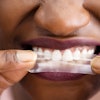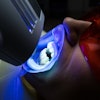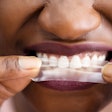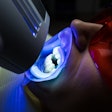
Utah is considering updating its stance on Botox in dentistry. While there is limited interest among the small population of dentists in the state, a handful of vocal proponents are compelling dental organizations there to examine dated guidelines.
Current laws are unspecific about the use of Botox, stating that dentists are permitted to administer drugs "related to and appropriate in the practice of dentistry," according to an article in the Salt Lake Tribune. In 2008, the state licensing board broadened the definition to include Botox for therapeutic but not cosmetic reasons.
The Utah Dentist and Dental Hygienist Licensing Board has yet to determine where it stands exactly, according to Rich Radmall, DDS, chairman of the board. "The Dental Practice Act in Utah covers the use of Botox and dermal fillers if it's related to a dental procedure. We're taking the cautious view," he told DrBicuspid.com. "I'd like to go that route and not say 'no' because it could prove to be a real asset to dentistry."
“We just haven't had a lot of dentists clamoring
for it.”
Association director
He also noted that the board is only an advisory group. "We can make a recommendation for a statute or rule change and then go through the proper procedures," he explained.
The Utah Dental Association (UDA) has been similarly cautious about taking a stance on Botox.
"So far, the opinion has been 'No, we don't want to go there,' " UDA Director Monte Thompson told DrBicuspid.com. "My guess is, within the next two to five years, the board will say 'Why not?' and put up with the guff that the medical board will raise."
Currently in Utah, only oral surgeons are allowed to administer Botox extraorally, while other dentists may do so intraorally. "It's been that way since 2008," Thompson said. "It didn't go to rules, it didn't go to statute. And it probably never will go to statute -- it's too cumbersome to go through the Legislature for things like this."
Some states, such as New Jersey and Massachusetts, have legislated specific training requirements, although they are in the minority of states that permit dentists to administer Botox extraorally.
How much training required?
For his part, Louis Malcmacher, DDS, president of the American Academy of Facial Esthetics and host of several continuing education courses that teach Botox administration, is confident that all dentists in the state will soon be able to freely administer Botox.
"The key words are 'dental aesthetics and dental therapeutic uses in the oral and maxillofacial areas,' " Dr. Malcmacher told DrBicuspid.com. "In other words, we don't want anyone thinking that we can inject Botox into someone's hand. There are a lot of places on the body where Botox is given for a lot of different uses."
He compared it to aspects of dentistry that overlap other medical professions. "You don't need to specifically address [administering Botox] the same way you don't need to specifically address the use of antibiotics in dentistry because you're practicing dentistry," he added.
If the state's licensing board does take notice and decides to allow more freedom for dentists in administering Botox, there will likely be stipulations.
"The general feeling is, if dentists start doing Botox, they're going to need to have some kind of training," Dr. Radmall explained. "Dr. Malcmacher came and gave a presentation last October in Salt Lake; some dentists expressed interest, but there's not been a huge influx."
Thompson agreed. "Dr. Malcmacher has been pushing this -- and I don't mean that in a bad way -- and has had some seminars, so all of a sudden we have a few dentists coming to us saying, 'You ought to change the law.' "
When asked about potential objections, Dr. Radmall said he couldn't conceive of any significant ones. "I don't know that there's a whole lot of opposition," he said.
Thompson agreed. "Most dentists I've talked to say, 'Hey, there's nobody that knows how to do injections in the head better than dentists,' " he explained. "If that's true, they may not even need more education."
That topic will continue to be the central aspect of the discussion about Botox privileges.
"It will be the biggest hurdle, showing that dentists have the training," he said. "But we're a small state. Time- and money-wise, is it worth it to set up a system to credential it? We tend not to do that too much -- we like to leave the dentists pretty freehanded, generally speaking. But that's what they're going to have to decide."
That decision is unlikely to happen quickly. "We just haven't had a lot of dentists clamoring for it," Thompson said.



















